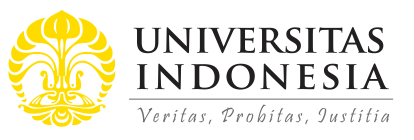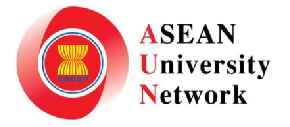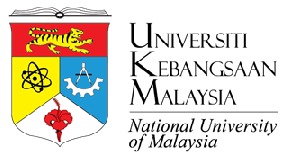
Abstract
This study examines the complex governance dynamics affecting Indonesian Badan Usaha Milik Desa (BUMDes) [village-owned enterprises], focusing on political, social, economic, and cultural pressures. Using a qualitative multi-case approach, including focus group discussions with 65 participants from West Java and West Nusa Tenggara, Indonesia, the study identified significant challenges: political interference, limited community engagement, economic dependence on government funds, and cultural norms that constrain BUMDes operations. Village elites frequently influence governance, limited capital access, and ingrained cultural values hinder transparency and open dialogue. To address these challenges, this study recommends a comprehensive approach comprising four key strategies: enhancing the institutional autonomy of BUMDes to reduce external interference, fostering that are transparent and inclusive government practices to ensure meaningful community participation, establishing sustainable funding models to secure financial independence, and integrating cultural adaptability into governance frameworks. Together, these strategies aim to build a resilient and inclusive governance structure for BUMDes, enabling them to fulfill their role in future village empowerment and economic development effectively.
References
Andrianto, M. S., Matoati, R., & Ermawati, W. J. (2023). Revitalization of organization and business determination of BUMDes Cibadak Mandiri of Cibadak Village, Ciampea District, Bogor Regency. Jurnal Pengabdian Kepada Masyarakat (Indonesian Journal of Community Engagement), 9(1), 12–18. https://doi.org/10.22146/jpkm.79467
Anggraeni, M. R. R. S. (2017). Peranan Badan Usaha Milik Desa (BUMDes) pada kesejahteraan masyarakat pedesaan studi pada BUMDes di Gunung Kidul, Yogyakarta [The role of village-owned enterprises (BUMDes) in the welfare of rural communities a study of BUMDes in Gunung Kidul, Yogyakarta]. Modus, 28(2), 155–167. https://doi.org/10.24002/modus.v28i2.848
Arifin, B., Wicaksono, E., Tenrini, R. H., Wardhana, I. W., Setiawan, H., Damayanty, S. A., Solikin, A., Suhendra, M., Saputra, A. H., Ariutama, G. A., Djunedi, P., Rahman, A. B., & Handoko, R. (2020). Village fund, village-owned enterprises, and employment: Evidence from Indonesia. Journal of Rural Studies, 79, 382–394. https://doi.org/10.1016/j.jrurstud.2020.08.052
Artosa, O. A. (2019). BUMDes sebagai arena negosiasi ekonomi-politik sumber daya alam: Studi atas BUMDes Tirta Mandiri Desa Ponggok, Klaten [BUMDes as negotiations arena for economic-political natural resources: Study of Tirta Mandiri BUMDes Ponggok Village, Klaten] [Master’s thesis, Universitas Gadjah Mada]. Perpustakaan Universitas Gadjah Mada. https://etd.repository.ugm.ac.id/penelitian/detail/182660
Bebbington, A., Dharmawan, L., Fahmi, E., & Guggenheim, S. (2006). Local capacity, village governance, and the political economy of rural development in Indonesia. World Development, 34(11), 1958–1976. https://doi.org/10.1016/j.worlddev.2005.11.025
Bogdan, R. C., & Biklen, S. K. (1998). Qualitative research for education: An introduction to theory and methods. In Foundations of qualitative research in education (pp. 1–48). Allyn and Bacon.
Burhanuddin, B., Agussalim, A., & Wahyuni, W. (2023). History and empirical: The influence of Badan Usaha Milik Desa (BUMDes) as joint venture on the brotherhood principle on village economic independence. Jurnal Ilmiah Mahasiswa Pendidikan Sejarah, 8(2), 420–425. https://jim.usk.ac.id/sejarah/article/view/24671
Dauletova, V., & Al-busaidi, A. S. (2024). Socio-cultural factors as driving forces of rural entrepreneurship in Oman. Journal of Small Business & Entrepreneurship, 36(5), 808–828. https://doi.org/10.1080/08276331.2022.2124815
Dolezal, C., & Novelli, M. (2022). Power in community-based tourism: Empowerment and partnership in Bali. Journal of Sustainable Tourism, 30(10), 2352–2370. https://doi.org/10.1080/09669582.2020.1838527
Gayo, S. B., Erlina, E., & Rujiman, R. (2020). Peranan Badan Usaha Milik Desa dalam meningkatkan perekonomian masyarkat perdesaan [The role of village-owned enterprises in enhancing village communities’ economics]. Media Komunikasi Geografi, 21(2), 202–209. https://ejournal.undiksha.ac.id/index.php/MKG/article/view/29805
Golfashani, N. (2003). Understanding reliability and validity in qualitative research. The Qualitative Report, 8(4), 597–607. https://doi.org/10.46743/2160-3715/2003.1870
Harmono, H. (2024). The impact of local political dynamics on the existence and sustainability of BUMDes in Galagamba Village. Cirebon Annual Multidisciplinary International Conference (CAMIC 2024). https://ejournalugj.com/index.php/camic/article/view/9081
Hendriks, C. M. (2009). Deliberative governance in the context of power. Policy and Society, 28(3), 173–184. https://doi.org/10.1016/j.polsoc.2009.08.004
Hilmawan, R., Aprianti, Y., Vo, D. T. H., Yudaruddin, R., Bintoro, R. F. A., Fitrianto, Y., & Wahyuningsih, N. (2023). Rural development from village funds, village-owned enterprises, and village original income. Journal of Open Innovation: Technology, Market, and Complexity, 9(4), Article 100159. https://doi.org/10.1016/j.joitmc.2023.100159
Hopper, T., & Powell, A. (1985). Making sense of research into the organizational and social aspects of management accounting: A review of its underlying assumptions [1]. Journal of Management Studies, 22(5), 429–465. https://doi.org/10.1111/j.1467-6486.1985.tb00007.x
Kania, I., Anggadwita, G., & Alamanda, D. T. (2021). A new approach to stimulate rural entrepreneurship through village-owned enterprises in Indonesia. Journal of Enterprising Communities: People and Places in the Global Economy, 15(3), 432–450. https://doi.org/10.1108/JEC-07-2020-0137
Khaerunnisa, R. (2024, October 11). BPKP sebut baru 75,8 persen BUMDES di Indonesia yang aktif [BPKP says only 75,8 percent of active BUMDes in Indonesia]. Antara News. https://www.antaranews.com/berita/4392098/bpkp-sebut-baru-758-persen-bumdes-di-indonesia-yang-aktif
Kirowati, D., & Setia, L. D. (2018). Pengembangan desa mandiri melalui BUMDes dalam meningkatkan kesejahteraan masyarakat desa: Studi Kasus Desa Temboro Kecamatan Karas Kabupaten Magetan [Developing independent village through BUMDes in enhancing the communities’ well-being: A case study of Temboro Village Karas Subdistrict Magetan Regency]. Jurnal AKSI (Akuntansi Dan Sistem Informasi), 3(1), 15–24. https://journal.pnm.ac.id/index.php/aksi/article/view/60
Kurniasih, D., Wijaya, S. S., & Setyoko, P. I. (2019). Public governance in accountability of village enterprise (BUMDes) management: A stakeholders perspective. IAPA Proceedings Conference, 180–191. https://doi.org/10.30589/proceedings.2018.192
Kurniawan, K. & Firmansyah, I. (2018). Development of village owned enterprises (BUMDES) as a solution to achieve mandiri village. International Journal of Business and Economic Affairs, 3(5), 185–194. https://www.ijbea.com/ojs/index.php/ijbea/article/view/24
Levine, J. R. (2017). The paradox of community power: Cultural processes and elite authority in participatory governance. Social Forces, 95(3), 1155–1179. https://www.jstor.org/stable/26166867
Lichtenstein, G. A., & Lyons, T. S. (2008). Revisiting the business life-cycle: Proposing an actionable model for assessing and fostering entrepreneurship. The International Journal of Entrepreneurship and Innovation, 9(4), 241-250. https://doi.org/10.5367/000000008786208759
Masaki, K. (2006). The oppression/emancipation nexus in ongoing power struggles: Village—Power dynamics in Western Nepal 1. The Journal of Development Studies, 42(5), 721–738. https://doi.org/10.1080/00220380600741847
Maxwell, J. A. (2012). Qualitative research design: An interactive approach. Sage Publications.
Mustofa, I., Adi, B.T.S., Sukmana, O., & Salviana, V. (2024). Leadership and cultural changes: Village head elections in shaping traditional values, Indonesia’s case study. International Journal of Research in Engineering, Science and Management, 7(5), 142–149. https://journal.ijresm.com/index.php/ijresm/article/view/3045
Undang-Undang Republik Indonesia Nomor 6 Tahun 2014 tentang Desa. (2014). https://jdih.setkab.go.id/PUUdoc/173985/UU%20062014.pdf
Prasetyo, R. A. (2016). Peranan BUMDES dalam pembangunan dan pemberdayaan masyarakat di Desa Pejambon Kecamatan Sumberrejo Kabupaten Bojonegoro [The role of BUMDes in community’s development and empowerment in Pejambon Village Sumberrejo Subdistrict Bojonegoro Regency]. Jurnal Dialektika, 11(1), 86–100.
Putterman, L. (1997). On the past and future of China’s township and village-owned enterprises. World Development, 25(10), 1639–1655. https://doi.org/10.1016/S0305-750X(97)00060-0
Rahma, N. A., Kasanah, N., Arisa, N., & Mahdi, M. (2023). Political power dynamics in the formulation of village head term extension policies. Al-Imarah: Jurnal Pemerintahan & Politik Islam, 8(2), 263–273. http://dx.doi.org/10.29300/imr.v8i2.3475
Ridlwan, Z. (2015). Urgensi Badan Usaha Milik Desa (BUMDes) dalam pembangun perekonomian desa [The urgency of village-owned enterprises (BUMDes) in building village’s economics]. Fiat Justitia: Jurnal Ilmu Hukum, 8(3), 424–440. https://doi.org/10.25041/fiatjustisia.v8no3.314
Sandelowski, M. (2000). Whatever happened to qualitative description? Research in Nursing & Health, 23(4), 334–340.
Sari, A. G. P., & Ilham, T. (2024). A deep dive Into the success of joint village-owned enterprises (joint-BUMDes) in Indonesia. Jurnal Bina Praja, 16(1), 215–233. https://doi.org/10.21787/jbp.16.2024.215-233
Scarlato, M. (2013). Social enterprise, capabilities and development paradigms: Lessons from Ecuador. The Journal of Development Studies, 49(9), 1270–1283. https://doi.org/10.1080/00220388.2013.790962
Shapland, P., van Paassen, A., & Almekinders, C. (2021). How the elite capture critique is used to legitimise top-down control of development resources. In D. Ludwig, B. Boogaard, P. Macnaghten, & C. Leeuwis (Eds.), The politics of knowledge in inclusive development and innovation (pp. 80–102). Routledge. https://doi.org/10.4324/9781003112525
Sofianto, A., & Risandewi, T. (2021). Mapping of potential village-owned enterprises (BUMDes) for rural economic recovery during the COVID-19 pandemic in Central Java, Indonesia. IOP Conference Series: Earth and Environmental Science. Article 887 012022. https://doi.org/10.1088/1755-1315/887/1/012022
Wang, K.-C. (2002). The five elements theory in business research. Proceedings of the 46th Annual Meeting of the Association of International Society for the Systems Sciences, Shanghai, China, 2–6.
Williams, G., Thampi, B. V, Narayana, D., Nandigama, S., & Bhattacharyya, D. (2011). Performing participatory citizenship – politics and power in Kerala’s Kudumbashree Programme. The Journal of Development Studies, 47(8), 1261–1280. https://doi.org/10.1080/00220388.2010.527949
Zulmahsyur, Z., & Avianto, B. N. (2019). Group dynamics and cronyism in village development planning participation. International Journal for Educational and Vocational Studies, 1(7), 777–786. https://doi.org/10.29103/ijevs.v1i7.1801
Recommended Citation
Fitriani, Desti; Shauki, Elvia R.; and Azim, Mohammad Istiaq
(2024).
Balancing Governance and Tradition: Navigating Political, Social, Economic, and Cultural Dynamics in Indonesian Village-Owned Enterprises.
ASEAN Journal of Community Engagement, 8(2), 164-181.
Available at: https://doi.org/10.7454/ajce.v8i2.1355







